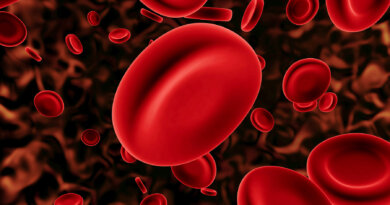HIV: Getting Past the Fear
Nearly 1.2 million people in the U.S. live with HIV. But research shows that more than 160,000 of them are not aware of their status. According to the CDC, nearly 40% of new HIV infections are transmitted by people who don’t know they have the virus.
For many, there are several reasons that may hold them back from getting a test. Fear of death, stigma, and being discriminated against or judged negatively in the event of a positive test are some of them.
But getting a test is the first step to knowing your status. That’s important information that helps you take charge of your health and prevent the viral infection that can cause AIDS.
Denial Plays a Part
For Kelly Gluckman of Seattle, HIV was the last thing on her mind when she stopped using condoms with her partner without getting tested for the virus first nearly 11 years ago.
“I knew that that wasn’t the smartest decision,” reflects Gluckman, 34.
Continued
She was 23 at the time, and even though she knew about HIV testing through comprehensive sex education in school, she says as a “white, straight female,” she just never saw herself at risk for HIV. But after about 6 months of unprotected sex, Gluckman and her partner decided to get tested to rule out HIV as a precaution.
“We both tested positive on Oct. 25, 2010. We were both pretty devastated,” Gluckman says.
“The immediate thought was, ‘Oh my God, I’m going to die.’ That really was the first thought. I faced mortality, because ‘HIV turns into AIDS and then you die.’ That’s just what had been drilled into me from what I saw in the media, and from what I learned about in school,” Gluckman says.
When she thinks back to it, Gluckman says denial played a role in the hesitation at getting a test.
“For 3 of those 6 months, we would talk about going and getting tested and then we just wouldn’t do it,” Gluckman says.
Outdated Perceptions
David Pantalone, professor of psychology at University of Massachusetts Boston, says many people still tend to have a “scary view of it [HIV].” He believes it may have something to do with outdated images and narratives about HIV from the ’80s.
“I think there isn’t a revised public conception of what it’s like to have HIV,” Pantalone says. “The reason is because what it looks like to have HIV now is basically the same as it looks like to not have HIV. The life expectancy data between HIV-positive folks and HIV-negative folks is not really that different.”
Treatment Gives Hope
While HIV doesn’t have a cure, the treatment, antiretroviral therapy (ART), is highly effective. It lowers the amount of HIV virus in your body, or your viral load. If you take the medicine just as your doctor tells you to, the viral load can become so low that it becomes “undetectable” on an HIV test. When this happens, there’s little to no chance of developing symptoms from the infection or spreading it to others. Usually, you can bring HIV under control with drugs in just under 6 months.
Continued
Gluckman saw positive results soon after she started taking her medication.
“I had no side effects that I can speak of. And my viral load became undetectable within 2 months,” Gluckman says.
“I thought, ‘Oh my god, I am going to live, I can be healthy with this thing, with this virus.’”
When Should You Get an HIV Test?
The CDC recommends that everyone between ages 13 to 64 have an HIV test at least once in their life. Usually, you can do this during your annual health check. If you haven’t had the test, ask your doctor about it.
If you’re at higher risk, you need to be tested more often — every 3 or 6 months to be sure. But Pantalone says the lack of testing also results from people mistaking that high risk for the disease “fits within an identity” when it’s a virus spread by common human behavior, like having sex.
“If you’ve had any condomless sex with any person, then you need an HIV test. Even if it’s low risk, you should still do it periodically, because you never know,” Pantalone says.
According to the CDC, you’re at higher risk for HIV if you can answer “yes” to any of the following questions:
- Are you a man who has had sex with another man?
- Have you had sex — anal or vaginal — with someone who has HIV?
- Have you had more than one sex partner since your last HIV test?
- Have you shared needles, shared injectable drugs, or other drug injection equipment with others?
- Have you had sex in exchange for drugs or money?
- Have you been diagnosed with or treated for other sexually transmitted diseases?
- Have you been diagnosed with or treated for hepatitis or tuberculosis (TB)?
- Have you had sex with someone whose sexual history you’re not aware of?
Continued
If any of this applies to you, you can benefit from a yearly HIV test even if your last test was negative.
If you’re pregnant, ask your doctor for an HIV test. If you have HIV when you get pregnant, tell your doctor as soon as possible. Your doctor can give you the right medications to help you and your baby stay healthy.
It’s also good practice to get tested for HIV and know your status before you have sex with a new partner for the first time. It’s always a good idea to ask about their sexual and drug-use history before you engage in sex. If you do live with HIV, tell them your status. If you’re unsure about you or your partner’s HIV status, make sure to wear a condom. This can help protect your health or stop others from getting the infection.
What to Ask Your Doctor
If you think you’ve been exposed to HIV or have what you think may be symptoms, talk to your doctor as soon as possible. Getting an HIV test or talking to your doctor about HIV may feel both awkward and stressful. But coming in prepared can help you deal with it better.
Continued
Take a list of questions with you so you can get the most reliable information. This can help your doctor come up with a treatment plan that works best for you.
Even if you find out that you don’t have HIV, it’s still a good time to ask questions and learn more about how you can steer clear of the possibility of HIV infection. You can ask questions like:
- How can I protect myself from HIV?
- How often should I get tested?
- Does my sex partner also need a test?
- Do you offer counseling on HIV prevention or recommend a place that does?
If you don’t want to go by yourself, ask a friend or family member to go along with you for emotional support. If you get a diagnosis of HIV, your doctor can point you to many resources to get you the help and treatment you need to bring the infection under control.
If you’re trying to persuade a close friend or a loved one to get checked for HIV, Pantalone says it may help to have them think of how knowing their HIV status or getting tested for it can help prevent the spread to other people they know.
You’re More Than Just a Virus
Stigma and lack of proper care can exist even among health care providers, according to Pantalone. But he says it’s best not to let that bother you.
“I think people who are in ongoing health care and want to start getting tested for HIV, (should) bring it up with their provider. And if that provider isn’t supportive, then switch,” Pantalone says. “Going to an organization that specifically serves the HIV community is a great way to be met with open arms and no judgments.”
At the end of the day, Gluckman says it’s important to remember that if you do test positive for HIV, you are more than just the virus in your body.
“You have a virus. Just like any other bacteria, any other virus. You are worthy of respect, you are worthy of love, you are worthy of health, you’re worthy of good sex. HIV is just the virus.”




I ggot this websikte frtom my friend who informewd me on tthe topic of
this web site and now thuis time I amm browsing thi webb site annd reaing
very infrmative posts at thius place.
dark internet free dark web deep web drug url
dark web search engines darknet market lists darknet search engine
dark web link dark web links darknet market lists
darknet drug links darknet links dark markets 2023